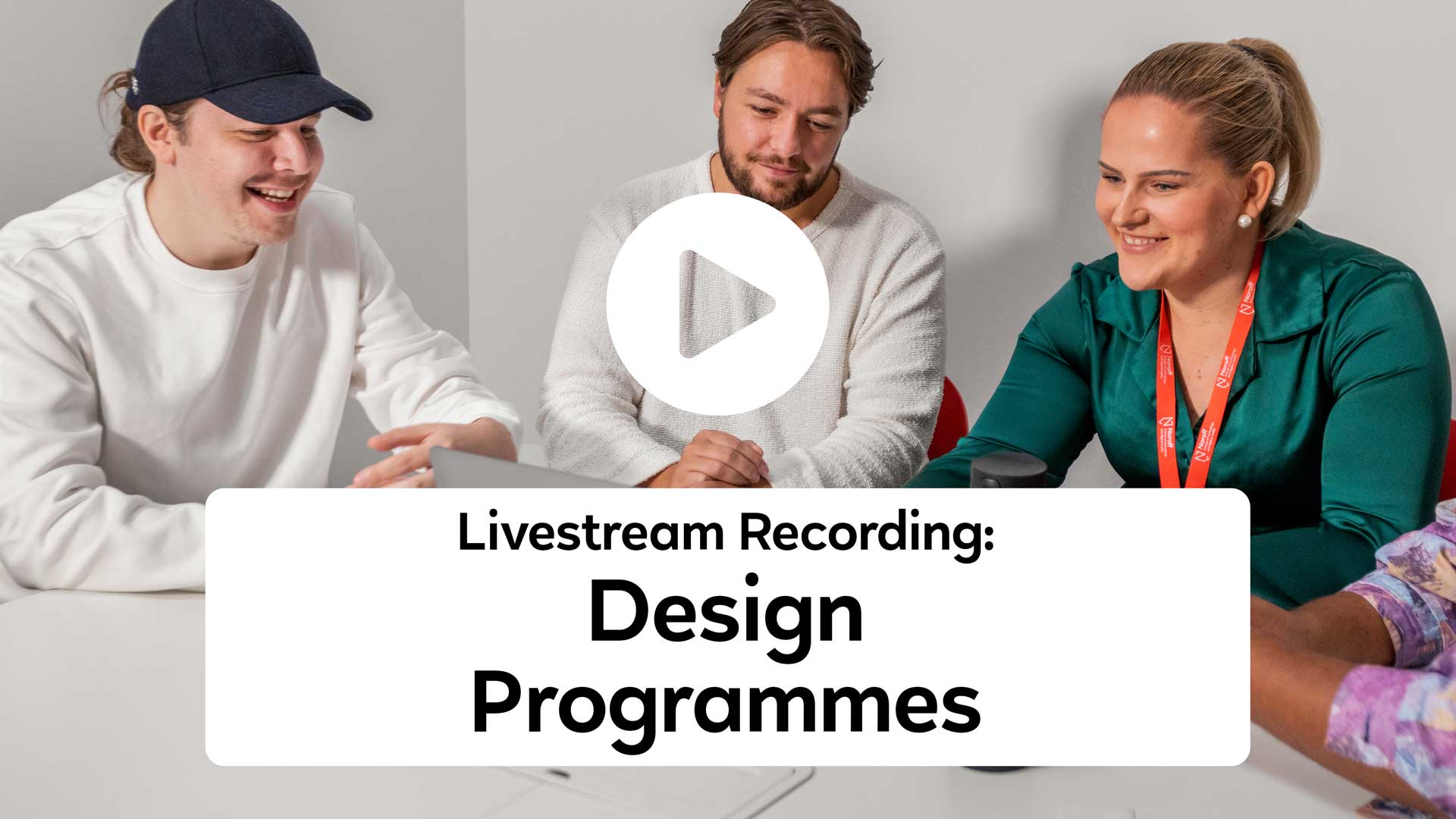How is AI used in the UX-design programme?
Students are encouraged to use AI as a supportive tool to enhance their learning, not as a replacement for their knowledge. Our UX Design programme now integrates AI across the curriculum, preparing students to meet the demands of today’s digital design industry by working on real-world AI company briefs that focus on new areas of interface design.
Learners gain practical experience with AI tools and techniques while exploring the ethical implications and limitations of AI in design practice. This ensures that students learn how to responsibly and effectively use AI tools, preparing them for its increasing role in the industry. Throughout the learning journey, students will also receive guidance on the ethical and transparent use of AI.
We emphasise that AI should be used as a tool to support creativity, not replace it, and that all AI usage in student work must be clearly referenced. While AI can assist with many tasks in the design process, it is important to note that human-centred design, innovation, and real-world problem-solving skills remain irreplaceable and central to the UX designer’s role.
Our UX Design students will be equipped for the evolving landscape of integrated AI mobile applications, AI-driven browser experiences, and AI prompt interface designs that are becoming the new space for UX design.
How is AI used in the workplace as a UX designer?
AI is transforming how UX designers work by automating tasks such as analysing user behaviour, identifying patterns, and providing insights into user preferences. AI can also suggest design improvements based on data analysis and generate personalised user interfaces tailored to different needs in real time. This allows designers to focus on creative and strategic aspects while AI handles repetitive tasks.
A paradigm shift has occurred with AI, accelerating traditional UX design practices and enabling the creation of more realistic, polished prototypes that offer greater interactivity and richer content in less time for clients.
However, a solid understanding of user-centred design principles remains essential, as AI-generated insights still require careful interpretation and human judgement.













